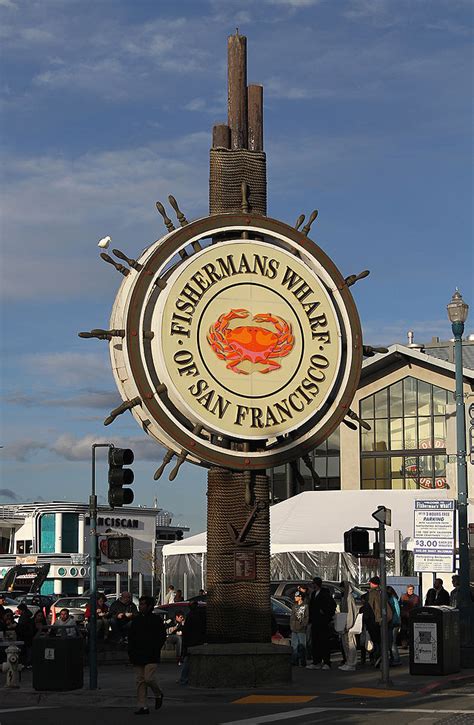
After nearly a century of serving seafood to San Francisco locals and tourists alike, Alioto’s Restaurant, a cornerstone of Fisherman’s Wharf, has closed its doors. The iconic establishment, founded in 1925, ceased operations on Sunday, marking the end of an era for the city’s historic waterfront.
Alioto’s closure reflects the challenges facing legacy businesses in San Francisco, battling rising costs, changing consumer preferences, and the evolving landscape of Fisherman’s Wharf. The restaurant, a symbol of San Francisco’s Italian-American heritage, had become a familiar sight for generations of visitors.
The announcement of the closure came with little fanfare, leaving many to reflect on the restaurant’s significant impact on the city’s culinary scene and its role in shaping the identity of Fisherman’s Wharf. The Alioto family, who have operated the restaurant for almost 100 years, expressed gratitude to their loyal customers and staff.
A Storied History Ends
Alioto’s Restaurant was established by Nunzio Alioto, an immigrant from Sicily, who started with a small fish stand. Over the decades, the business expanded into a full-service restaurant, becoming a landmark destination known for its fresh seafood, traditional Italian dishes, and waterfront views. The restaurant weathered numerous economic downturns, shifts in tourism, and changes in culinary trends, remaining a constant presence in a rapidly evolving city.
“For nearly 100 years, Alioto’s has been a beloved part of Fisherman’s Wharf, serving generations of San Franciscans and visitors from around the world,” stated a representative from the Alioto family. “We are incredibly grateful for the support we have received over the years.”
The restaurant’s location on Fisherman’s Wharf made it a prime spot for tourists seeking an authentic San Francisco experience. Its menu featured classic seafood dishes, including cioppino, Dungeness crab, and clam chowder, prepared with recipes passed down through generations of the Alioto family. The interior of the restaurant was adorned with nautical décor, photographs, and memorabilia, reflecting its long history and connection to the city’s maritime heritage.
Despite its enduring popularity, Alioto’s faced increasing pressures in recent years. Rising rents, labor costs, and competition from newer restaurants took a toll on the business. The COVID-19 pandemic further exacerbated these challenges, forcing the restaurant to temporarily close and adapt to new safety protocols. While Alioto’s managed to reopen, the long-term impact of the pandemic, coupled with existing financial strains, ultimately led to its closure.
The closure of Alioto’s highlights the broader struggles faced by legacy businesses in San Francisco. Many long-standing establishments have been forced to close in recent years due to the city’s high cost of living, complex regulatory environment, and changing demographics. The loss of these businesses diminishes the city’s unique character and cultural heritage, raising concerns about the future of San Francisco as a vibrant and diverse urban center.
The Future of Fisherman’s Wharf
The departure of Alioto’s raises questions about the future of Fisherman’s Wharf, a popular tourist destination that has undergone significant changes in recent years. While the area remains a draw for visitors, it has also faced criticism for becoming overly commercialized and losing some of its authentic charm. The closure of a landmark restaurant like Alioto’s underscores the need for a renewed focus on preserving the area’s unique character and supporting local businesses.
The Port of San Francisco, which manages Fisherman’s Wharf, has stated its commitment to revitalizing the area and attracting new businesses that reflect the city’s diverse culture and culinary scene. The port is exploring various options for the Alioto’s location, with the goal of finding a tenant that will contribute to the long-term vibrancy of Fisherman’s Wharf.
“We are saddened to see Alioto’s close its doors after so many years of serving the community,” said a spokesperson for the Port of San Francisco. “We are committed to working with stakeholders to ensure that Fisherman’s Wharf remains a thriving destination for residents and visitors alike.”
The closure of Alioto’s has prompted discussions about the importance of preserving San Francisco’s history and supporting its legacy businesses. Many residents and community leaders are calling for policies that will help these businesses thrive in a challenging economic environment. These policies could include rent control for commercial spaces, tax incentives for small businesses, and streamlined permitting processes.
Remembering Alioto’s
For many San Franciscans, Alioto’s was more than just a restaurant; it was a place where families gathered for special occasions, where tourists experienced the city’s culinary traditions, and where memories were made. The closure of Alioto’s marks the end of an era, but its legacy will live on in the hearts of those who cherish the restaurant’s history and contributions to the city.
“Alioto’s was a true San Francisco institution,” said a long-time resident. “It was a place where you could always count on good food, friendly service, and a taste of the city’s history. It will be sorely missed.”
The restaurant’s closure serves as a reminder of the importance of supporting local businesses and preserving the unique character of San Francisco. As the city continues to evolve, it is crucial to ensure that its rich history and cultural heritage are not forgotten. The story of Alioto’s Restaurant is a testament to the enduring spirit of San Francisco and the resilience of its small business owners.
Impact on Employees and Community
The immediate impact of Alioto’s closure is felt most keenly by its employees. Many of the restaurant’s staff had worked there for decades, becoming part of the Alioto’s family. The closure has resulted in job losses and uncertainty for these individuals, who are now faced with the challenge of finding new employment in a competitive market.
The Alioto family has expressed their commitment to supporting their employees during this transition. They are providing severance packages and assistance with job placement. However, the loss of a long-term employer is a significant blow to the affected workers and their families.
The closure also has broader implications for the Fisherman’s Wharf community. Alioto’s was a major draw for tourists, and its absence will likely impact other businesses in the area. The restaurant’s closure could lead to a decline in foot traffic and revenue for nearby shops and attractions.
Local business leaders are working to mitigate the impact of Alioto’s closure and attract new businesses to Fisherman’s Wharf. They are exploring various initiatives to promote the area and enhance its appeal to visitors. These initiatives include marketing campaigns, special events, and infrastructure improvements.
Broader Economic Context
The closure of Alioto’s Restaurant is symptomatic of the broader economic challenges facing San Francisco. The city’s high cost of living, coupled with rising business expenses, has made it difficult for many small businesses to survive. The COVID-19 pandemic has further exacerbated these challenges, leading to widespread job losses and business closures.
San Francisco’s economy is heavily reliant on the technology industry, which has experienced significant fluctuations in recent years. The rise of remote work has also reduced the demand for office space, impacting the city’s commercial real estate market. These factors have contributed to a sense of economic uncertainty and anxiety among San Francisco residents.
City officials are working to address these challenges and promote economic diversification. They are investing in infrastructure projects, supporting small businesses, and attracting new industries to San Francisco. However, the city faces significant hurdles in its efforts to revitalize its economy and ensure a sustainable future.
The Legacy of Italian-American Businesses in San Francisco
Alioto’s Restaurant was more than just a business; it was a symbol of San Francisco’s Italian-American heritage. The city has a long and rich history of Italian immigration, dating back to the Gold Rush era. Italian immigrants played a significant role in shaping San Francisco’s culture, economy, and culinary scene.
Italian-American businesses have been a vital part of San Francisco’s economy for generations. These businesses range from restaurants and bakeries to construction companies and retail stores. They have contributed to the city’s unique character and provided employment opportunities for countless residents.
The closure of Alioto’s is a reminder of the challenges facing Italian-American businesses in San Francisco. Many of these businesses are struggling to survive in the face of rising costs and changing demographics. The loss of these businesses would diminish the city’s cultural heritage and erode its unique identity.
Community organizations and leaders are working to preserve San Francisco’s Italian-American heritage and support its legacy businesses. They are organizing cultural events, providing business assistance, and advocating for policies that will help these businesses thrive. The preservation of Italian-American businesses is essential to maintaining San Francisco’s diversity and cultural richness.
The Changing Culinary Landscape of San Francisco
The closure of Alioto’s Restaurant reflects the changing culinary landscape of San Francisco. The city has become a global culinary destination, attracting chefs and restaurateurs from around the world. The rise of new culinary trends and technologies has transformed the restaurant industry, creating both opportunities and challenges for established businesses.
San Francisco’s dining scene is known for its innovation, diversity, and quality. The city boasts a wide range of restaurants, from Michelin-starred establishments to casual eateries. The culinary scene is constantly evolving, with new restaurants opening and closing regularly.
The closure of Alioto’s underscores the need for restaurants to adapt to changing consumer preferences and market conditions. Restaurants must innovate their menus, embrace new technologies, and provide exceptional customer service to remain competitive. The ability to adapt and evolve is essential for survival in San Francisco’s dynamic culinary landscape.
A Call to Action: Supporting Local Businesses
The closure of Alioto’s Restaurant serves as a call to action for San Franciscans to support their local businesses. Small businesses are the backbone of the city’s economy, providing employment opportunities and contributing to its unique character. Supporting these businesses is essential to ensuring a vibrant and sustainable future for San Francisco.
There are many ways to support local businesses. Residents can choose to shop at local stores, dine at local restaurants, and use local service providers. They can also advocate for policies that will help small businesses thrive, such as rent control for commercial spaces and tax incentives for small businesses.
By supporting local businesses, San Franciscans can help preserve the city’s unique character and ensure a prosperous future for all. The closure of Alioto’s is a reminder of the importance of community support and the need to protect the city’s legacy businesses.
FAQ: Alioto’s Restaurant Closure
Q1: Why did Alioto’s Restaurant close?
A1: Alioto’s Restaurant closed due to a combination of factors, including rising rents, labor costs, increased competition, and the long-term economic impact of the COVID-19 pandemic. These challenges made it unsustainable for the restaurant to continue operating after nearly a century in business. As stated by a representative from the Alioto family, they are “incredibly grateful for the support we have received over the years,” but the economic realities proved too difficult to overcome.
Q2: How long was Alioto’s Restaurant in business?
A2: Alioto’s Restaurant was in business for nearly 99 years. It was founded in 1925 by Nunzio Alioto, an immigrant from Sicily, who started with a small fish stand. The business evolved into a full-service restaurant, becoming a landmark destination on Fisherman’s Wharf.
Q3: What will happen to the Alioto’s Restaurant location on Fisherman’s Wharf?
A3: The future of the Alioto’s Restaurant location is currently under consideration by the Port of San Francisco, which manages Fisherman’s Wharf. The port is exploring various options for the space, with the goal of finding a tenant that will contribute to the long-term vibrancy of the area. The Port of San Francisco has stated its commitment to “working with stakeholders to ensure that Fisherman’s Wharf remains a thriving destination for residents and visitors alike.”
Q4: What impact will the closure have on the employees of Alioto’s Restaurant?
A4: The closure of Alioto’s Restaurant has resulted in job losses for its employees. The Alioto family has expressed their commitment to supporting their employees during this transition, providing severance packages and assistance with job placement. However, the loss of a long-term employer is a significant blow to the affected workers and their families.
Q5: What does the closure of Alioto’s Restaurant say about the state of legacy businesses in San Francisco?
A5: The closure of Alioto’s Restaurant highlights the broader struggles faced by legacy businesses in San Francisco. The city’s high cost of living, complex regulatory environment, and changing demographics have made it difficult for many long-standing establishments to survive. The loss of these businesses diminishes the city’s unique character and cultural heritage, raising concerns about the future of San Francisco as a vibrant and diverse urban center. The need for policies that support and preserve these businesses has become increasingly apparent as iconic establishments like Alioto’s close their doors. Detailed Background Information and Expanded Context
The story of Alioto’s Restaurant is intertwined with the history of Fisherman’s Wharf and the Italian-American community in San Francisco. To fully understand the significance of its closure, it’s essential to delve deeper into the historical context, economic factors, and cultural impact of this iconic establishment.
The Rise of Fisherman’s Wharf
Fisherman’s Wharf evolved from a humble fishing port in the mid-19th century to a bustling tourist attraction. Following the Gold Rush, Italian immigrants, primarily from Genoa and Sicily, flocked to San Francisco, bringing with them their fishing skills and maritime traditions. They established a thriving fishing industry, supplying fresh seafood to the growing city. Fisherman’s Wharf became the center of this industry, with numerous fishing boats, processing plants, and seafood markets lining the waterfront.
Over time, as the fishing industry declined, Fisherman’s Wharf transitioned into a tourist destination. Restaurants, souvenir shops, and attractions catering to visitors sprung up along the waterfront. Despite the changes, the area retained its maritime character, with fishing boats still operating from the wharf and seafood restaurants continuing to serve fresh catches.
Alioto’s: A Family Legacy
Nunzio Alioto’s journey from a Sicilian immigrant to a successful restaurateur is a testament to the entrepreneurial spirit of the Italian-American community. He arrived in San Francisco with little more than a dream and a strong work ethic. Starting with a small fish stand, he gradually expanded his business, eventually opening Alioto’s Restaurant in 1925.
The restaurant quickly became a popular destination, known for its fresh seafood, traditional Italian dishes, and warm hospitality. The Alioto family operated the restaurant for generations, passing down recipes, traditions, and a commitment to quality. The restaurant’s success was a reflection of the Alioto family’s dedication and their ability to adapt to changing times.
The Restaurant’s Cultural Impact
Alioto’s Restaurant was more than just a place to eat; it was a cultural institution. It served as a gathering place for families, a destination for tourists seeking an authentic San Francisco experience, and a symbol of the city’s Italian-American heritage. The restaurant’s interior, adorned with nautical décor, photographs, and memorabilia, told the story of Fisherman’s Wharf and the Alioto family’s history.
The restaurant’s menu featured classic seafood dishes that reflected the culinary traditions of the Italian-American community. Cioppino, a seafood stew originating in San Francisco, was a signature dish at Alioto’s. Dungeness crab, a local delicacy, was another popular item on the menu. These dishes, prepared with recipes passed down through generations, provided a taste of San Francisco’s culinary heritage.
Economic Challenges and the Pandemic
In recent years, Alioto’s Restaurant faced increasing economic challenges. Rising rents, labor costs, and competition from newer restaurants put pressure on the business. The COVID-19 pandemic further exacerbated these challenges, forcing the restaurant to temporarily close and adapt to new safety protocols.
The pandemic had a devastating impact on the restaurant industry in San Francisco. Many restaurants were forced to close permanently, while others struggled to survive with reduced capacity and limited hours. Alioto’s managed to reopen, but the long-term impact of the pandemic, coupled with existing financial strains, ultimately led to its closure.
The Future of Fisherman’s Wharf
The closure of Alioto’s Restaurant raises questions about the future of Fisherman’s Wharf. The area has undergone significant changes in recent years, with some critics arguing that it has become overly commercialized and lost some of its authentic charm. The closure of a landmark restaurant like Alioto’s underscores the need for a renewed focus on preserving the area’s unique character and supporting local businesses.
The Port of San Francisco has stated its commitment to revitalizing Fisherman’s Wharf and attracting new businesses that reflect the city’s diverse culture and culinary scene. The port is exploring various options for the Alioto’s location, with the goal of finding a tenant that will contribute to the long-term vibrancy of the area.
Preserving San Francisco’s History
The closure of Alioto’s Restaurant serves as a reminder of the importance of preserving San Francisco’s history and supporting its legacy businesses. Many residents and community leaders are calling for policies that will help these businesses thrive in a challenging economic environment. These policies could include rent control for commercial spaces, tax incentives for small businesses, and streamlined permitting processes.
The story of Alioto’s Restaurant is a testament to the enduring spirit of San Francisco and the resilience of its small business owners. As the city continues to evolve, it is crucial to ensure that its rich history and cultural heritage are not forgotten.
The Loss of Community Identity
The closure of Alioto’s is not just the loss of a business; it’s a loss of community identity. For generations, families have celebrated milestones, tourists have experienced San Francisco culture, and locals have found a sense of belonging within its walls. This loss is deeply felt by those who considered Alioto’s a part of their lives.
Furthermore, the diminishing number of Italian-American businesses in San Francisco represents a gradual erosion of the city’s cultural fabric. These establishments are not just businesses; they are repositories of tradition, language, and community spirit.
Government and Community Initiatives
To combat the challenges faced by legacy businesses, various initiatives are needed. These include:
-
Rent Control for Commercial Spaces: This could help stabilize rents and prevent displacement of long-standing businesses.
-
Tax Incentives: Providing tax breaks for small businesses could alleviate financial burdens and encourage investment.
-
Streamlined Permitting Processes: Simplifying the permitting process could reduce bureaucratic hurdles and make it easier for businesses to operate and expand.
-
Community Support Programs: Establishing programs that connect legacy businesses with resources, mentorship, and financial assistance could provide valuable support.
-
Preservation Funds: Creating funds specifically to preserve historical landmarks and cultural institutions could ensure their survival for future generations.
The Importance of Storytelling
In the wake of Alioto’s closure, it’s crucial to preserve its story and the stories of other legacy businesses. Documenting their history, collecting memories from patrons and employees, and sharing these narratives can help ensure that their contributions are not forgotten.
Museums, historical societies, and community organizations can play a role in preserving these stories. Oral history projects, photo archives, and online exhibits can help keep the memory of Alioto’s and other similar establishments alive.
Conclusion: A Time for Reflection and Action
The closure of Alioto’s Restaurant marks the end of an era in San Francisco. It’s a time for reflection on the city’s history, the challenges facing legacy businesses, and the importance of community support. It’s also a time for action, to implement policies and initiatives that will help preserve San Francisco’s unique character and ensure a vibrant future for all. While Alioto’s physical presence may be gone, its legacy should inspire efforts to safeguard the institutions that define San Francisco’s identity.









